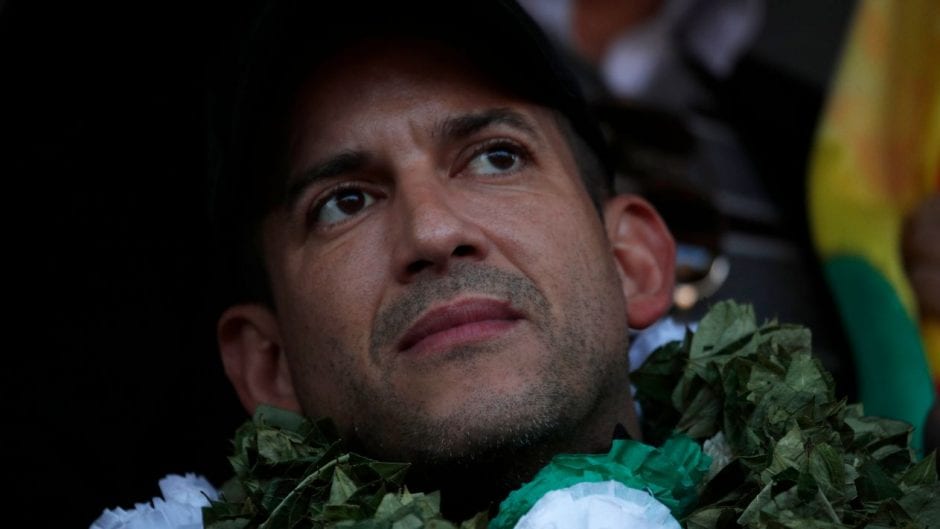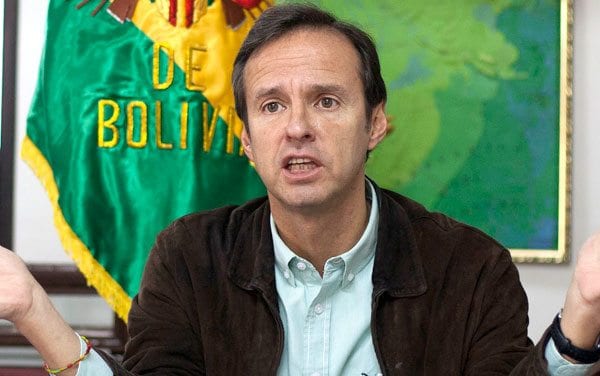On March 22, the interim president of Bolivia, Jeanine Áñez, issued a decree on universal quarantine throughout the country. With the difficult spread of dangerous coronavirus in the region, South American states hope to avoid an outbreak. So far, the Bolivian government intends to adhere to strict measures and restrictions until April 4, but quarantine may be extended. However, despite the circumstances, from the beginning of March all of Bolivia began to actively prepare for the General Elections. Today, the “LACRUS” project will continue to acquaint you with the main characters of the pre-electoral “race”.
Last Sunday, the acting head of state, Jeanine Áñez (Spanish – Jeanine Áñez Chávez), nevertheless decided to take extreme measures and adopted a decree on universal quarantine on the territory of all 9 departments of the country. Due to such unforeseen circumstances, on March 23, the President of the Bolivian Supreme Electoral Court Salvador Romero (Spanish – Salvador Romero Ballivián) announced during a press conference that the long-awaited elections, which were to be held on May 3, will be postponed due to the spread coronavirus in the region. Nevertheless, the head of the Bolivian electoral body noted that the election process will be scheduled in the shortest possible time.
This time, the “LACRUS” project will once again introduce you to two candidates for the presidency of Bolivia, because today the electoral process in this country is monitored not only by the entire Latin American region, but also by the world community as a whole. This degree of interest, of course, is caused by the events unfolding in November 2019 related to the resignation of Evo Morales (Spanish – Juan Evo Morales Ayma).

One of the candidates for the presidency in the upcoming elections is Luis Camacho (Spanish – Luis Fernando Camacho), who became known to the world public in October last year as the leader of the Civil Movement, which “with the Bible in his hands” called for radical measures: early resignation of Morales and the entire official government, as well as the adoption of cardinal decisions. Who is Luis Fernando Camacho and what does he offer as part of his election program? Camacho, a Bolivian lawyer, businessman and politician, is a descendant of emigrants from the Cochabamba department, the son of Jose Camacho Parada (Spanish – José Luis Camacho Parada), who chaired the Civil Committee of the Santa Cruz Department from 1981 to 1983. It is worth noting that Luis Camacho, in 2002 joined the party “Revolutionary Nationalist Movement” (Spanish – Movimiento Nacionalista Revolucionario), and in the period from 2002 to 2004. He served as Deputy Chairman of the Civil Union “Youth Union of the Santa Cruz Department” (Spanish – Union Juvenil Cruceñista, UJC), which in 2008-2009 came under suspicion of the International Organization for Human Rights in the region as a supposed paramilitary group. Until recently, Luis Camacho owned the firm “Legal Cooperation” (Spanish – Corporación Jurídica), and since February 2019 he headed the Civil Committee of the Santa Cruz Department. However, after the overthrow of former President Evo Morales, he resigned in order to run for president in the General Elections of 2020 from the religious and political coalition “Believe” (Spanish – Creemos), in tandem with a candidate for vice President Marco Pumari (Spanish – Marco Antonio Pumari Arriaga).
On January 24, 2020, at an event at the Hotel “Europa” in La Paz, Luis Camacho and Marco Pumari presented their political bloc called “Believe”, which united the alliance of the “Christian Democratic Party” (Spanish – Partido Demócrata Cristiano), the organization “Civil Citizenship of Solidarity” (Spanish – Unidad Cívica Solidaridad) and the radical right faction of the “Nationalist Democratic Action party” (Spanish – Acción Democrática Nacionalista).
It is worth noting that the “Believe” political bloc supports Christian fundamentalist ideology, and a number of international media have long identified Luis Camacho with Brazilian President Jair Bolsonaro for his radical and ultra-conservative political positions. Many Bolivian media criticize Camacho for his “racist” statements and ultra-right views. In addition, feminist groups accuse him of “misogyny,” while LGBT people accuse him of gender and racial discrimination. According to him, the leader of the political bloc “Believe” intends to carry out large-scale economic reforms aimed at developing large business and supporting industry. It is very logical that Camacho advocates the development of the country’s eastern departments, support for the Christian Democratic movement and the privatization of a number of large enterprises in the energy sector.

Another candidate for the presidency this time will again be a Bolivian politician, former president of the country (2001-2002) – Jorge Quiroga (Spanish – Jorge Fernando Quiroga Ramírez). In 1997, Quiroga was elected Vice President of Bolivia, winning the election of the “Nationalist Democratic Action Party” (Spanish – Acción Democrática Nacionalista) in tandem with former dictator Hugo Banzer (Spanish – Hugo Banzer Suárez). When Banzer resigned for health reasons, on the basis of the Constitution in 2001, Quiroga took over as head of state of Bolivia. Jorge Quiroga served as president from June 1, 2001 until the completion of the constitutional term of Banzer’s presidency on August 6, 2002.
In 2005, Quiroga ran for president as a candidate from the center-right coalition, known as “CAN” (Spanish – PODEMOS). Then his main opponent in the 2005 elections was Evo Morales, who won as a result, and Quiroga took second place, gaining 28.62% of the vote. In 2014, Jorge Quiroga again took part in the elections, having nominated himself as a candidate for the “Christian Democratic Party” (Spanish – Partido Demócrata Cristiano), as a result of which he won 9.04% of the vote. In the 2000s worked as a consultant to the World Bank and the International Monetary Fund.
On January 24, 2020, the right-wing parties of the “Revolutionary Nationalist Movement” (Spanish – Movimiento Nacionalista Revolucionario, MNR) and the “Sovereignty Movement” (Spanish – Movimiento Por la Soberanía, MPS) presented a single political bloc, “Freedom-21” (Spanish – Libre 21) and as his candidate for the post of head of state – Jorge Quiroga. Quiroga noted that the bloc was named after the period of 21 days of resistance of the Bolivian people to rig the elections in 2019, and also recalls the results of the referendum on February 21, 2016 – “21F”. On January 9, the candidate presented his “Digital Green Heart” program (Spanish – Corazón Verde Digital), which proposes the nationalization of railways, the distribution of shares in state-owned companies, and constitutional reform. In addition, this program is aimed at improving the judicial system and the fight against corruption.
According to the latest data published on March 15 by the “Ciesmori” consulting company, 7.1% of respondents support the candidacy of the leader of the civil movement from the political bloc “Believe”. For the former head of state, Jorge Quiroga, is currently ready to vote – 1.7%. Nevertheless, the results may change dramatically during the electoral campaign, which started only in early March and is already gaining momentum. The other candidates for the presidency of Bolivia and their chances of victory are already in the next article of the “LACRUS” project.


